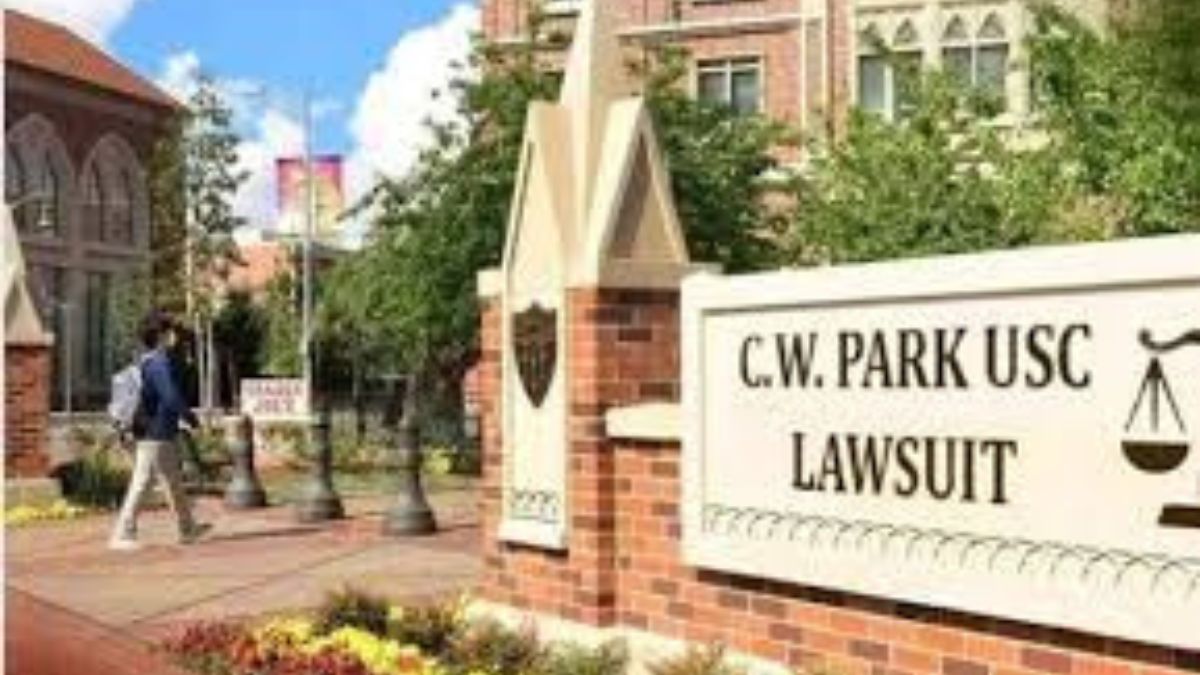In the world of higher education, where prestige and reputation reign supreme, scandals can rock even the most esteemed institutions. The recent C.W. Park USC Lawsuit has sent shockwaves through academia, shedding light on alleged misconduct that has sparked controversy and raised important questions about ethics and accountability in university settings. Let’s delve into the details of this high-profile case to uncover what lies beneath the surface of one of America’s top universities.
Overview of the Allegations
In the C.W. Park USC lawsuit, a spotlight shines on the allegations that have rocked the university community. These accusations range from misconduct to unethical behavior, sparking a wave of concern and scrutiny. The claims suggest a breach of trust and raise questions about accountability within the institution.
As details unfold, it becomes apparent that the allegations are multifaceted and have far-reaching implications for all parties involved. The complexity of the situation adds layers of intrigue to an already contentious legal battle. With each revelation, observers are left pondering the depths of these accusations and their potential consequences.
The gravity of these allegations cannot be overstated, as they cast a shadow over not just individuals but also the reputation of USC as a whole. The fallout from these claims reverberates throughout campus, leaving students, faculty, alumni, and stakeholders grappling with uncertainty and doubt. As investigations continue and more information comes to light, one thing remains clear: this is a pivotal moment for USC and its future trajectory.
Key Players Involved in the Lawsuit
In the C.W. Park USC Lawsuit, there are several key players at the center of this legal battle that has captured widespread attention. Dr. C.
W. Park himself is a prominent figure in the academic world, renowned for his research and contributions to the field of management studies. His reputation now hangs in the balance as these allegations unfold.
The University of Southern California (USC) plays a crucial role in this lawsuit as well, being accused of turning a blind eye to misconduct within its ranks. USC’s handling of this situation will undoubtedly have far-reaching implications for its standing within higher education circles.
Legal teams representing both Dr. Park and USC are working tirelessly to present their respective cases in court, each aiming to protect their interests and reputations amidst this high-profile controversy.
As details continue to emerge and developments unfold, it remains essential to closely monitor how these key players navigate through the complexities of this lawsuit and what outcomes may ultimately transpire from their involvement.
Impact on USC and its Reputation
The C.W. Park USC Lawsuit has cast a shadow over the prestigious university, raising concerns about its handling of allegations and transparency. With such high-profile legal battles making headlines, USC’s reputation as a leading institution in higher education is under scrutiny.
Allegations of misconduct within the university have led to questions regarding governance and accountability. The impact on USC goes beyond just financial implications; it extends to the trust and confidence stakeholders place in the institution.
As news of the lawsuit spreads, potential students, faculty members, and donors may reevaluate their ties with USC. The damage to its reputation could affect recruitment efforts, research partnerships, and overall standing in academic circles.
In navigating this challenging time, USC must address these issues head-on to rebuild trust and safeguard its long-standing legacy in academia.
Similar Cases in Higher Education
In the landscape of higher education, scandals and lawsuits are unfortunately not uncommon. Over the years, universities have faced legal challenges that have rocked their reputations and raised questions about integrity.
Cases like the recent C.W. Park USC Lawsuit shed light on issues within academic institutions that go beyond one isolated incident. From admissions fraud to misconduct by faculty members, these cases expose vulnerabilities in university systems.
Similar lawsuits involving prestigious universities have highlighted themes of privilege, corruption, and ethical breaches. These incidents serve as a reminder that transparency and accountability are crucial in maintaining public trust.
While each case may differ in specifics, they collectively underscore the need for universities to uphold standards of fairness and honesty in all aspects of their operations. The repercussions of such controversies can be far-reaching, impacting not only those directly involved but also tarnishing the institution’s standing in the eyes of students and society at large.
As higher education continues to face scrutiny and calls for reform, it is essential for institutions to learn from past mistakes and strive towards a culture of responsibility and excellence.
Legal Ramifications and Next Steps
The legal ramifications of the C.W. Park USC lawsuit are profound and far-reaching. As the case unfolds, it sets a precedent for how universities handle allegations of misconduct by faculty members. This has sparked discussions around accountability, transparency, and due process in higher education institutions.
Moving forward, the next steps in this lawsuit will likely involve thorough investigations, legal proceedings, and potential reforms within USC’s policies and procedures regarding faculty conduct. The outcome of this case could influence how other universities address similar issues in the future.
It is essential for all parties involved to navigate these legal waters carefully to ensure that justice is served while upholding fairness and integrity throughout the process. The impact of this lawsuit extends beyond just one institution; it shines a spotlight on broader systemic issues within academia that demand attention and action.
As developments continue to unfold, stakeholders will be closely monitoring how the legal system addresses these allegations and what measures USC takes to uphold its reputation while ensuring accountability.
Conclusion and Takeaways for Universities
In navigating the complexities of the C.W. Park USC Lawsuit, universities must prioritize transparency and accountability to maintain trust with their stakeholders. It serves as a reminder that rigorous oversight and adherence to ethical standards are crucial in higher education institutions.
Moving forward, universities should establish robust compliance mechanisms, foster a culture of integrity, and swiftly address any allegations of misconduct. By proactively addressing issues and upholding high standards of conduct, institutions can safeguard their reputation and fulfill their mission effectively.
The impact of legal disputes like the C.W. Park USC Lawsuit extends beyond financial implications; it underscores the importance of upholding values and principles in academic settings. As higher education continues to evolve, staying vigilant against unethical practices is vital for ensuring credibility and maintaining public trust.
By learning from cases like this one at USC, universities can take proactive steps to strengthen governance structures, uphold ethical standards, and preserve their standing as pillars of knowledge dissemination and innovation within society. In doing so, they not only protect themselves legally but also contribute to fostering a culture of integrity that benefits all stakeholders involved in academia.










